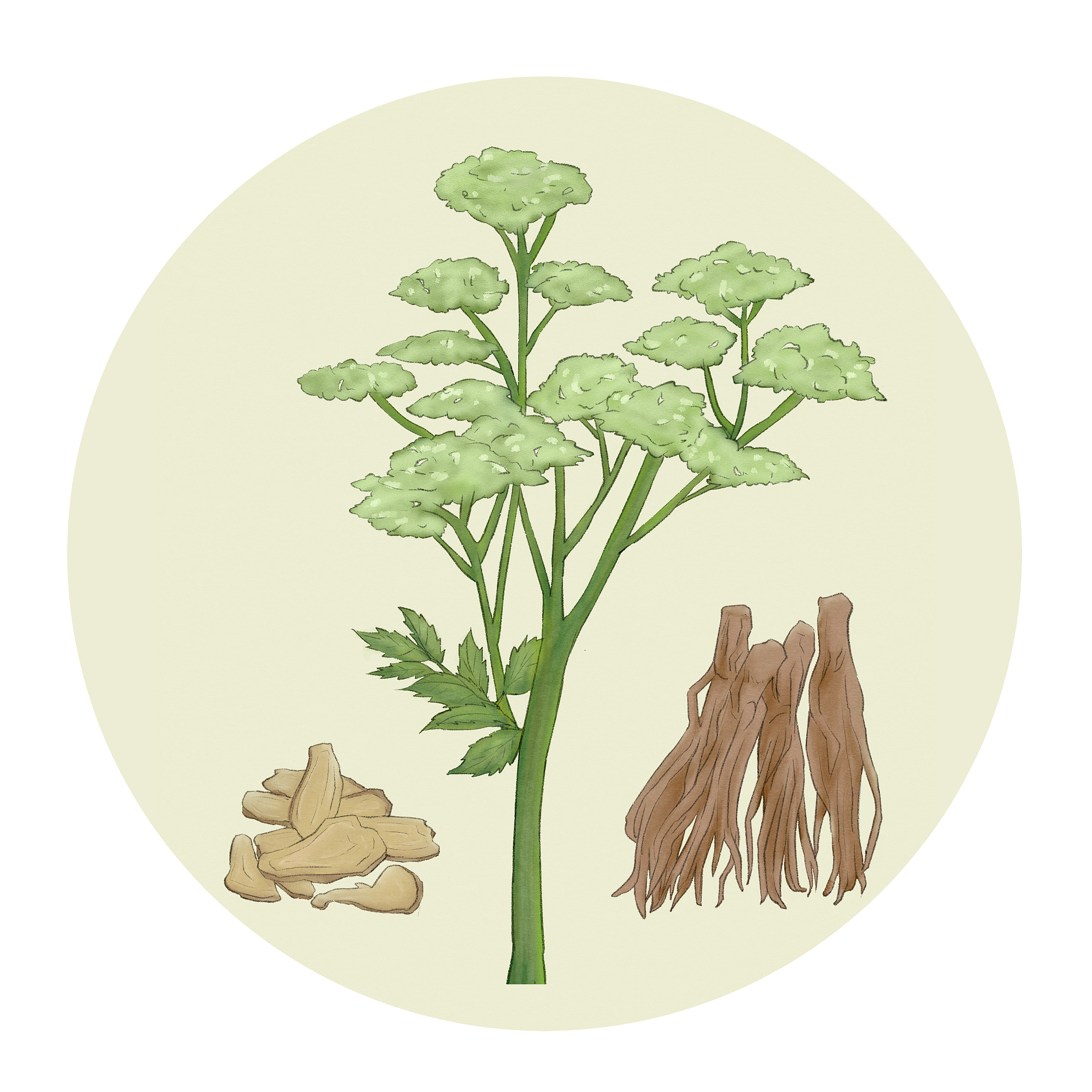Legend has it that in ancient times there was a young man named Wang Fu who lived with his mother and made a living by farming and collecting medicine. Hundreds of kilometers away from home, there was a huge mountain, said to grow many magical herbs, but few people dared to go there because of the rough roads, poisonous snakes and wild animals. Fu wanted to go up the mountain to find the magic medicine, but his mother advised him to go after marriage. Fu followed his mother's wishes.
One day after his marriage, his neighbors talked about him behind his back, saying that he was too timid to go to the mountain. When the word reached Fu's ears, he made up his mind to explore the mountain. Fu said to his wife, "If I don't return after three years, you can marry another man." The next day, he went up the mountain.

Three years passed, and Fu hadn't come home. The mother thought he must be dead and advised her daughter-in-law to remarry another man at her son's request. However, less than half a month after the remarriage, he came back with a full load of rare medicinal herbs. After hearing about his wife's remarriage, he was deeply distressed and regretful and gave all the herbs to his wife.
From then on, the wife was so sad that she became sick with melancholy and had irregular periods. She was so distressed that she tried to eat the herbs all in an attempt to poison herself to death. Unexpectedly, instead of dying, her periods became regular.
The herb Wang Fu picked is called Dong quai (also known as Female ginseng).
In ancient times, Dong quai has the meaning of "thinking of husband" since its Chinese name "Danggui" is short for "Ying Dang Gui Lai" ("should return"), according to "Compendium of Materia Medica."
As Li Shizhen wrote in "Compendium of Materia Medica," (Ben Cao Gang Mu) , Dong quai mainly cures headaches, heart and abdominal pain, ulcers, and it has the effect of discharging pus and relieving pain, and replenishing blood.
According to the "Chinese Pharmacy Dictionary," it's clinically used in the treatment of diseases such as muscle, joint pain and neuralgia, chronic tracheitis, chronic pelvic inflammatory, menopathy and hypertension.
The dry root of Angelica sinensis, which has a spicy and sweet taste and a moderate nature, is mainly used as medicine.
Angelica sinensis is a herb belonging to the family Apiaceae, indigenous to China. It grows in cool high altitude mountains in China, Japan and the Korea peninsula. The yellowish brown root of the plant is harvested in the fall and is a well-known Chinese medicine which has been used for thousands of years.

About 'The Great Herbs' series:
Chinese herbal medicine is the precious legacy of the Chinese people's struggle against diseases for thousands of years and the essence of Chinese culture accumulated over this time. The "Compendium of Materia Medica," written by Li Shizhen, is a valuable heritage of ancient Chinese medicine and botany that has played a significant role in promoting the development of medicine and pharmaceuticals in China and even the world. In this series, CGTN explores some of the great herbs mentioned in the book.
For more:
The Great Herbs: The first of China's nine immortal herbs
The Great Herbs: The buster of blood
The Great Herbs: Flowers with two colors
The Great Herbs: The king of hundreds of herbs
The Great Herbs: Ancient 'mushroom of immortality' on rotten woods
The Great Herbs: Herb with a fishy taste
The Great Herbs: Licorice 'the old man' in the kingdom of medicine
The Great Herbs: Red arrows
The Great Herbs: Heal-all herb withers in summer
The Great Herbs: From natural dye to herbal medicine
The Great Herbs: The malaria buster
(If you want to contribute and have specific expertise, please contact us at nature@cgtn.com.)

